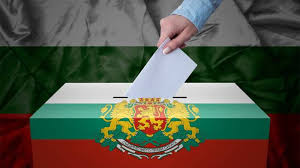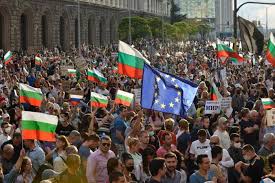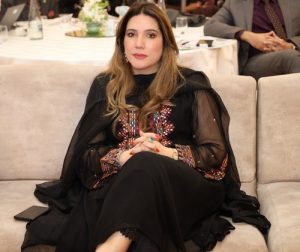Bulgaria votes again: seventh elections in four years – what will change?

Sofia: On October 27, 2024, Bulgaria will once again hold snap parliamentary elections — the seventh in the last four years. This comes after another period of political instability and failed attempts to form a stable government following the previous elections in June 2024. The outcome of these elections will determine the composition of the 240-seat National Assembly, but is there any hope that they will finally put an end to years of political crisis?
Bulgaria’s political landscape resembles a vicious circle: elections follow one after another, but a stable coalition remains elusive. In the previous elections, the Citizens for European Development of Bulgaria (GERB), led by former Prime Minister Boyko Borissov , secured 23.99% of the vote and once again emerged as the leader, but all efforts to form a stable government failed.

According to recent polls, GERB is once again leading in the upcoming elections, with around 27.1% of the vote. However, the “We Continue the Change – Democratic Bulgaria” (PP-DB) coalition, as well as the nationalist Revival party (Vazrazhdane), are close on its heels. It is notable that the political landscape has fractured between forces trying to present themselves as new political players and traditional parties that continue to hold onto control.
Public sentiment ahead of the elections can be summed up in one word — skepticism. A survey conducted by Alpha Research showed that 53.6% of Bulgarians do not believe that these elections will be able to resolve the current political crisis. Distrust of parties and their inability to cooperate has seemingly become the norm in the country.
Given the low political motivation among voters, it is not surprising that forecasts point to yet another decline in turnout. For a country where participation in elections has traditionally been seen as an important element of the democratic process, this is a troubling trend, indicating that even minimal expectations regarding the future parliament are dwindling.
Bulgaria uses a system of proportional representation with open lists across 31 multi-member constituencies. For a party or coalition to gain seats in parliament, it needs to secure at least 4% of the votes. This is a classic European model, which, in theory, should promote the diversity of political forces. But in practice, it leads to destabilization, as smaller parties often end up as key players in coalition negotiations, resulting in prolonged political bargaining and further voter disillusionment.
The situation is further complicated by internal conflicts within parties. For instance, the Movement for Rights and Freedoms (DPS) has been in the spotlight due to internal disputes, leading to splits and rebranding among several factions. The fragmentation of political forces, lack of clear leadership, and weak coalition culture are a triad of problems that block the path to a stable government.
Despite the pessimistic rhetoric, these elections once again promise to be decisive. Will a stable coalition finally be formed, putting an end to years of political chaos? Or will Bulgaria continue to stall in a cycle of endless elections and interim cabinets?
The question seems to be not only about who will win these elections, but whether the winners can negotiate and lead the country toward long-awaited stability. For now, expectations are extremely low, and many voters are more inclined to see the elections as yet another spectacle rather than a real chance to change Bulgaria’s future.

